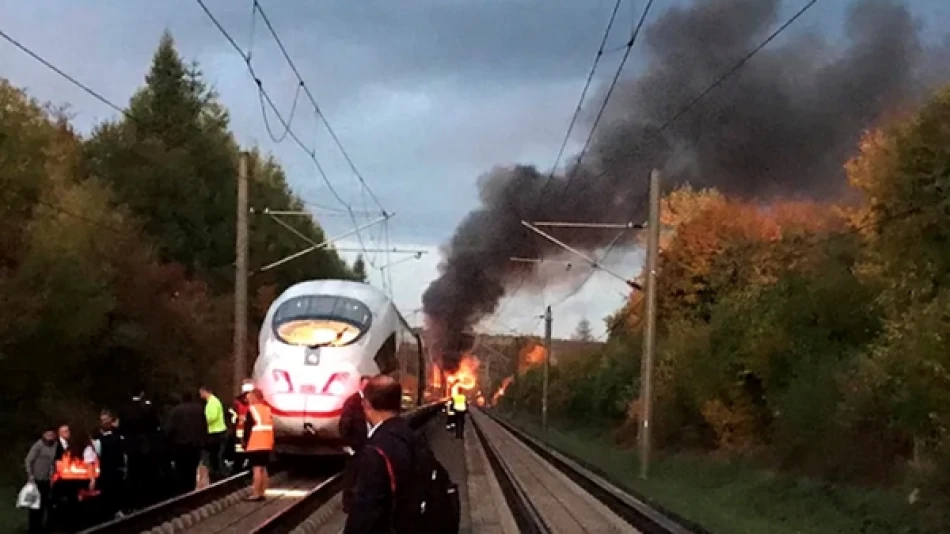
Devastating Railway Fire Disrupts Western Germany's Transport Network
Germany's Rail Network Under Attack: Second Suspected Sabotage Incident Raises Security Concerns
German authorities have launched a state security investigation after suspected arsonists deliberately targeted railway infrastructure in Wuppertal, marking the second apparent sabotage attack on the country's rail network in less than a month. The incident highlights growing vulnerabilities in Europe's critical transportation infrastructure and raises questions about coordinated efforts to disrupt Germany's economic backbone.
Latest Attack Details
The fire broke out late Friday evening on railway lines in western Germany, approximately 30 kilometers east of Düsseldorf. Initial investigations by Deutsche Bahn, Germany's national railway operator, indicate that accelerants were likely used to ignite cable coverings near railway switch points in Wuppertal.
According to police reports, three switch points were damaged in what one spokesperson described as a fire "large enough for local residents to notice." Crucially, two cables appear to have been deliberately cut before being set ablaze, suggesting premeditated sabotage rather than accidental damage.
Police helicopters conducted overnight searches for potential perpetrators, though no arrests have been announced. The involvement of state security investigators indicates authorities are treating this as a potential threat to national infrastructure rather than simple vandalism.
Pattern of Infrastructure Attacks
Recent Precedent
This incident follows a strikingly similar attack less than a month ago on the Düsseldorf-Duisburg railway line, where incendiary devices destroyed signal and guidance cables, causing major disruptions to both long-distance and regional train services. The proximity in time and methodology suggests a possible coordinated campaign against German rail infrastructure.
Minimal Service Impact Masks Deeper Concerns
While Deutsche Bahn reported only minor disruptions to train services from the latest attack, the targeting of signal cables and switch points reveals sophisticated knowledge of railway vulnerabilities. These components are critical for safe train operations, and their destruction could have caused far more severe consequences under different circumstances.
Strategic Implications
Economic Vulnerability
Germany's railway network carries approximately 2.8 billion passengers annually and serves as a crucial freight corridor connecting Northern European ports with industrial centers. Systematic attacks on this infrastructure could significantly impact both domestic mobility and international trade routes, particularly given Germany's role as Europe's largest economy.
Security Response Evolution
The immediate involvement of state security investigators reflects lessons learned from previous infrastructure attacks across Europe. German authorities appear to be treating these incidents with the seriousness typically reserved for potential terrorism or state-sponsored sabotage, rather than common criminal activity.
Broader European Context
These attacks occur against a backdrop of increased infrastructure vulnerabilities across Europe, from cyberattacks on energy grids to physical sabotage of telecommunications networks. The railway incidents in Germany echo similar concerns raised by security officials about the protection of critical infrastructure in an increasingly unstable geopolitical environment.
The methodical nature of these attacks—targeting specific technical components rather than causing maximum visible damage—suggests perpetrators with detailed knowledge of railway operations. This technical sophistication, combined with the apparent coordination between incidents, will likely prompt enhanced security measures across Germany's 33,000-kilometer rail network.
As investigations continue, the incidents serve as a stark reminder of how vulnerable modern transportation networks remain to determined saboteurs, regardless of their limited immediate impact on services.
Most Viewed News

 Layla Al Mansoori
Layla Al Mansoori






